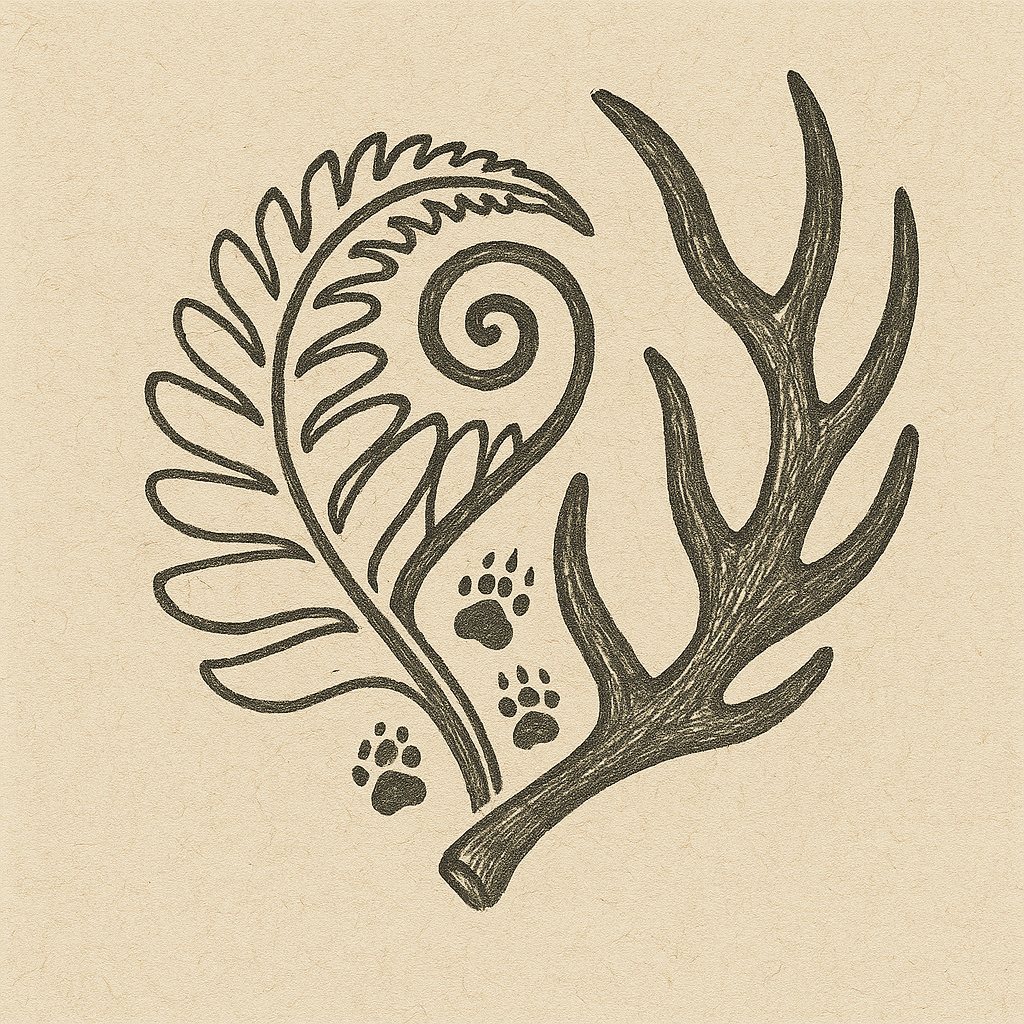Deskeylla
"Tend the wild and the weak alike; every creature bears the spark."
Description of the Church
The Church of Deskeylla, known as The Verdant Path, is not so much a formal institution as a living communion with the wild. It has no central cathedral—the world is her temple, and every glade, thicket, den, and hollow is sacred. Shrines are grown rather than built: groves shaped by coaxed branches, clearings marked with stones, living altars formed from vines and moss.
There is no single scripture. Instead, oral tradition, animal signs, seasonal cycles, and the behavior of the land itself form the sacred canon. Those who follow Deskeylla do not merely revere nature—they seek to rejoin it, live within its rhythms, and serve as stewards rather than masters.
Her church is decentralized and adaptive. In the depths of the forest, rites are old and primal; near cities, druids act as intermediaries, reminding urban dwellers of their connection to the natural world. Every temple is unique—some wild and overgrown, others carefully tended like a garden-priory.
Core Beliefs
- Nature is sovereign—not to be conquered, but honored and understood.
- Every creature, plant, and stone has a spirit, and each one plays a role in the balance of the world.
- The cycle of life and death is sacred, and interference must be careful and deliberate.
- The wild teaches wisdom through observation, patience, and humility.
- Magic should flow with the natural order, not against it.
Religious Structure
The Verdant Path is an informal yet deeply interconnected web of nature-priests, beast-singers, and greenwardens.
- The Wildheart – A mythical title rather than a position, said to belong to a priest or druid who becomes one with Deskeylla’s will. Some believe the Wildheart is not a person, but a presence that moves from body to body when needed.
- High Verdans – Respected sages of their regions, often old druids or beast-kin. They serve as wisdom-keepers, interpreters of omens, and speakers with the spirits of ancient groves.
- Tenders – Priests who care for groves, shelters, and wild sanctuaries. Many also serve as herbalists, healers, and protectors of endangered life.
- Rangers of the Green Vow – Holy hunters, guardians, and guides who swear to never take more than is needed and to defend nature’s sanctity.
- Saplings – Sometimes called "buds." Young initiates who learn Deskeylla’s ways by living in the wild, caring for animals, and studying plants and cycles.
Rituals and Practices
- The First Bloom: A spring festival in which seeds are planted with whispered prayers. Every flower that blooms is considered a word of blessing.
- Offering of the Bone: After a hunt, bones are buried or left in sacred places as thanks to the animal's spirit.
- Rites of Molt and Rut: Coming-of-age ceremonies for followers, aligned with seasonal animal cycles.
- The Wildfast: A spiritual retreat into the deep forest, where one must survive and listen for Deskeylla’s voice in wind, water, and birdsong..
Followers
- Druids, herbalists, and rangers who live in tune with nature.
- Hunters and foragers, especially those who follow codes of respect and balance.
- Beast-tamers and whisperers, who believe animals are kin, not tools.
- Recluses, forest mystics, and wildfolk, who shun civilization’s noise and believe truth is found in the rustling leaves and lichen-covered stones.
Temples
There are no traditional temples—only groves, sacred springs, wildflower meadows, and dens. Each sacred site is tended by nature and mortal hand alike. Common features include:
- Prayer-trees, with bark-carvings or ribbons tied with names and hopes.
- Animal altars, where bones, feathers, and antlers are arranged into natural mandalas.
- Stone circles used for celestial observation and rituals aligned with the solstices or migration cycles.
Some forest temples are mobile, carried on the backs of giant beasts, blooming wherever they stop.
Conflict and Controversy
- Despises industrialization, especially in cities that tear up forests or pollute rivers.
- Clashes with Orbaak’s followers, especially those who mine without restraint or see nature as raw material.
- Tensions with Aergethyr’s clergy, who impose law where Deskeylla’s followers feel instinct and natural consequence should govern.
- Symbiotic tension with Zedast—water and forest depend on one another, but flood and drought strain that bond.
Relationships with other gods
Central Architect: Deskeylla is seen as the heart of the living world, the embodiment of wild growth and instinct. If Marawae imagined beauty and Aergethyr etched boundaries, Deskeylla was the one who bloomed, untamed and sacred, expressing life’s will beyond mortal control. Some myths say she was not created—but awoke.
Relationship with Zedast (water): Deeply entwined. Zedast nourishes her forests and feeds her roots. Their temples often overlap in riverine groves, and their priests share rituals during floods and planting seasons. Some believe their union birthed the first rainforest.
Rivalry with Orbaak (metal, fire): Philosophical opposition. Orbaak reforges the world with hammer and flame, while Deskeylla insists it must grow, not be shaped. She views his mines and furnaces as scars upon the world, though some tales speak of grudging respect when he plants trees to honor fallen forges.

Symbol: A spiraling fern frond wrapping around an antler, with small paw prints hidden in the spiral.
Meaning: The unity of plant and beast, wildness and renewal, all life growing from a shared root.
Areas of Concern: Forests, Flora, Fauna, and Beasts
Edicts: Protect wild things, especially the voiceless. Plant what you harvest. Defend sacred spaces from fire, stone and steel. Respect the instincts of beasts and people alike.
Anathema: Harming natural environments or needlessly killing animals
Divine Attribute: Constitution or wisdom
Devotee Benefits:
Cleric Spells: 1st: gust of wind, 3rd: wall of thorns, 5th: plant form
Divine Font: Heal
Divine Sanctification: Can choose holy
Divine Skill: Nature
Domains: Air, nature, travel, water
Favored Weapon: Longbow



Comments